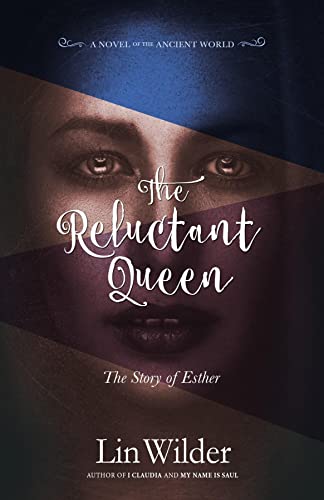Genre
Audience
Author’s Worldview
Catholic
Year Published
2021
Themes
Reviewed by
Xerxes. King of Persia. The Greeks referred to him just as “the King.” If you’re familiar with the stories of the Persian Wars, the name conjures images of a man larger than life, arrayed in gold and literally whipping the seas. And the modern depiction of him in Frank Miller’s 300 adds even more electric guitar. What sort of woman would this man choose for his wife, from all the maidens under Persian rule?
That’s a question that inspired Lin Wilder to write The Reluctant Queen. Weaving together what few sources we have, including The Book of Esther and Herodotus’ Histories, Wilder creates an insightful look into who this Queen could have been. A precocious and emotionally mature Jewish orphan, Esther lives a relatively normal life until her adopted father has a dream that she will be chosen by Xerxes as his next wife – and from there, she’s chosen by God to save the Jewish people in an event that is still commemorated in the feast of Purim.
The journey of Esther is fascinating, as is the Persian world. Wilder does an excellent job of fleshing out the society and finding a way to tie the famous story of the Persian Wars into the less well-known history of Purim as found in the Biblical Book of Esther. The highlight of the novel is Xerxes and his catastrophic descent into self-delusional madness thanks to his near limitless power.
Esther herself is competent and resourceful, but she isn’t going to be an engaging protagonist for all readers. Either you will love her – wise beyond her years and savvy – or hate her – too enigmatic and popular. She’s well written, but not always relatable. Wilder tries to help by including a few chapters in the first person POV, instead of the usual third, but in my opinion, Xerxes steals the show.
One major theme of the book is Esther trying to understand her husband’s culture – and religion – through the lens of her own religion. I wouldn’t consider this a religious book, though. It explores antiquity, Judaism, and the corruption of power, and the perspectives feel appropriate to the period. If the hand of God seems strong in the book, it’s because the hand of God is believed to be strong in antiquity. There is nothing preachy and certainly nothing foreshadowing Christianity/Catholicism. Anyone, religious or secular, interested in reading about this period can enjoy this book. People who want a different sort of romance with countless lives on the line and don’t mind historical and religious settings will also have a good time. There are marital scenes, but the writing is not explicit and would be appropriate for teenagers who are prepared. It is also not overly violent considering its setting in antiquity – far more people could have been killed in much more brutal ways.
I certainly hope that Wilder continues writing historical fiction, and you might be inspired to go try her earlier two novels. You’ll certainly be inspired to read The Book of Esther. The Reluctant Queen succeeds in building a plausible setting and establishing a cast of interesting characters that brings the world to life.



